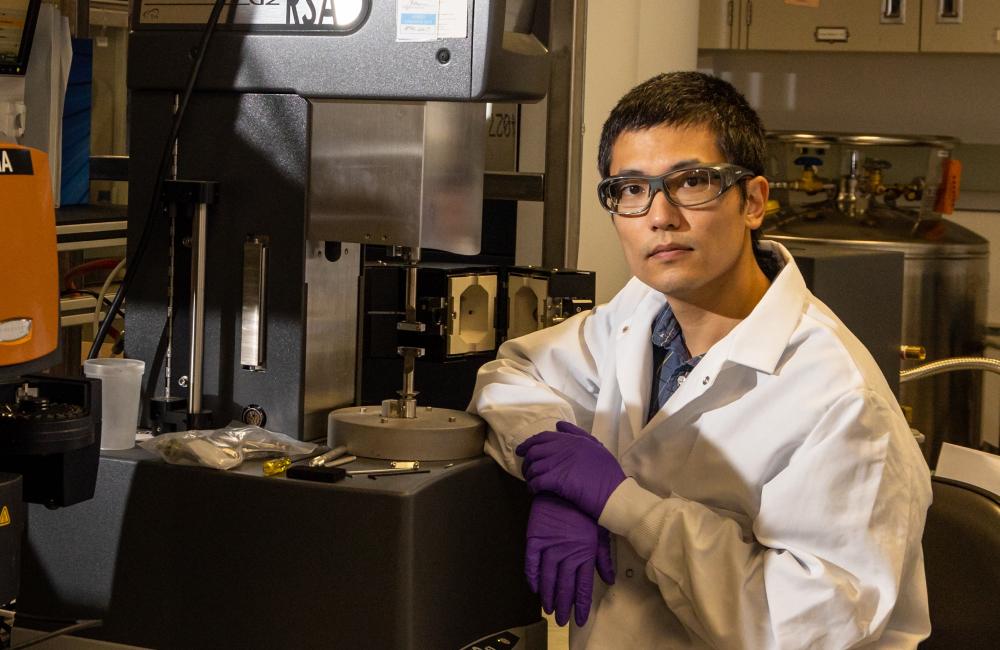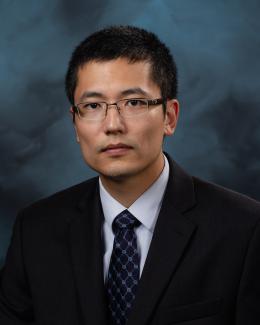Yangyang Wang. Image credit: Carlos Jones
In 2019, nine ORNL early career researchers were recognized with prestigious awards from the White House and the Department of Energy—the Presidential Early Career Award for Scientists and Engineers, or PECASE, and the DOE Early Career Research Program Award. We sat down with these promising young scientists to talk about their backgrounds and current research.
Polymers, the focus of Yangyang Wang’s research, are all around us.
“We can find them anywhere,” Wang said, glancing around his office in the Center for Nanophase Materials Sciences. “In this cell phone, in this plastic bag—everything we use in our daily lives.”
He’s interested in the diverse applications of the chain-like molecules, but what fascinates him most is using neutrons to find “missing pieces” in our current understanding of how polymers behave as they flow and deform.
Wang found polymer science while pursuing an undergraduate degree in chemistry from Peking University. He earned his Ph.D. from the University of Akron’s polymer science program before accepting a postdoctoral position at ORNL. He learned neutron scattering and computer simulation—techniques essential to his current research—after joining the CNMS in 2014.
His Early Career Award-winning proposal, “Fingerprinting macromolecular flow and deformation with neutrons,” will explore methods for understanding polymer behavior on the molecular level, starting with small-angle neutron scattering.
“You can imagine it as taking snapshots of a molecule when it deforms and stretches,” Wang said. “This technique helps us study how the molecule has changed its conformation.”
Using neutron spin-echo spectroscopy, Wang said he’ll observe how molecules “change shape in space and time,” adding a dynamic element. Mathematical analysis of both methods will help paint a complete picture of the way a polymer behaves under stress, its “dynamic fingerprint.” This can improve the ability of manufacturers to produce materials with desirable properties, such as elasticity.
The dynamic fingerprint, Wang explained, is a way to make sense out of a beautiful but otherwise meaningless set of information—a reflection of his evolving relationship to science.
“As a kid, you typically accept what other people tell you, and people tell you science is great,” Wang said of growing up in Beijing, where science careers are celebrated. “As you start doing science, it gets more personal. You find meaning in your job. We’re paid to create knowledge and learn new things.”—Abby Bower



